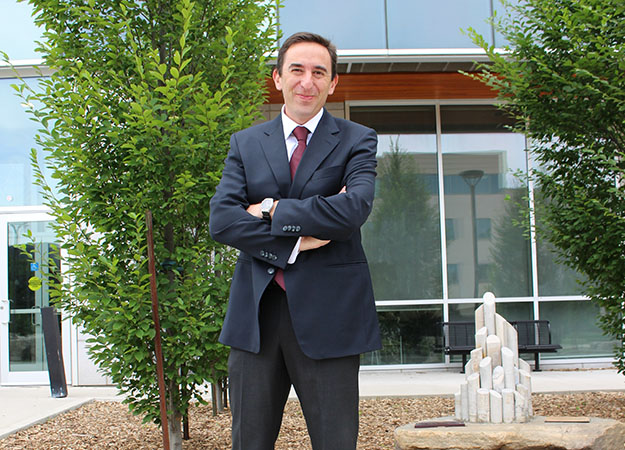Stars in Global Health: Carlos Filipe

Carlos Filipe is an associate professor of Chemical Engineering and acting associate dean (Academic) in the Faculty of Engineering.
McMaster has seven researchers involved in the Grand Challenges Stars in Global Health competition.
Funded by the Government of Canada, the Stars in Global Health initiative supports “Bold Ideas with Big Impact” from the best and brightest researchers in the world who are using scientific/technical, social and business innovation to address some of the most pressing global health challenges.
All video submissions clock in at less than two minutes, and anyone can watch and vote. Videos are available for viewing until 1 p.m. on June 10. Winners will receive up to $100,000 over a period of 12-18 months to demonstrate proof of concept of the idea.
Carlos Filipe is an associate professor of Chemical Engineering and acting associate dean (Academic) in the Faculty of Engineering.
What is your primary area of research expertise?
Enzymes, low-cost sensors and bioactive paper.
Can you summarize your submission to the Stars in Global Health competition?
We recently created a very simple method for long-term preservation of labile enzymes at room temperature — a refrigerator was previously required to achieve this. For the Stars in Global Health Competition, we want to apply this technology for vaccines, so they can be shipped around the world without the need of a cold chain distribution system. Achieving this is one of the 10 Grand Challenges set by the Gates Foundation.
What is the wider local or global impact of your research?
Ideally, every person in the world should have access to effective immunization. The number of people not receiving this is in the millions. Distribution can account for up to 80 per cent of the cost of a vaccine due to the need to maintain a cold chain — decreasing this cost substantially would have a tremendous impact on the extent of coverage of immunization programs.
How would winning the Stars in Global Health competition further your research efforts?
It would be enabling. We would have the funds to work on this area, which we truly believe has the potential to affect lives.
What makes McMaster a unique or exciting environment for conducting world-class research?
The collaborative atmosphere on this campus. If we receive this award, we would work with researchers in the departments of Chemistry, Biochemistry and Biomedical Sciences, Chemical Engineering as well as the Faculty of Health Sciences. These collaborative relations are already established, and they are the key to making significant breakthroughs.

